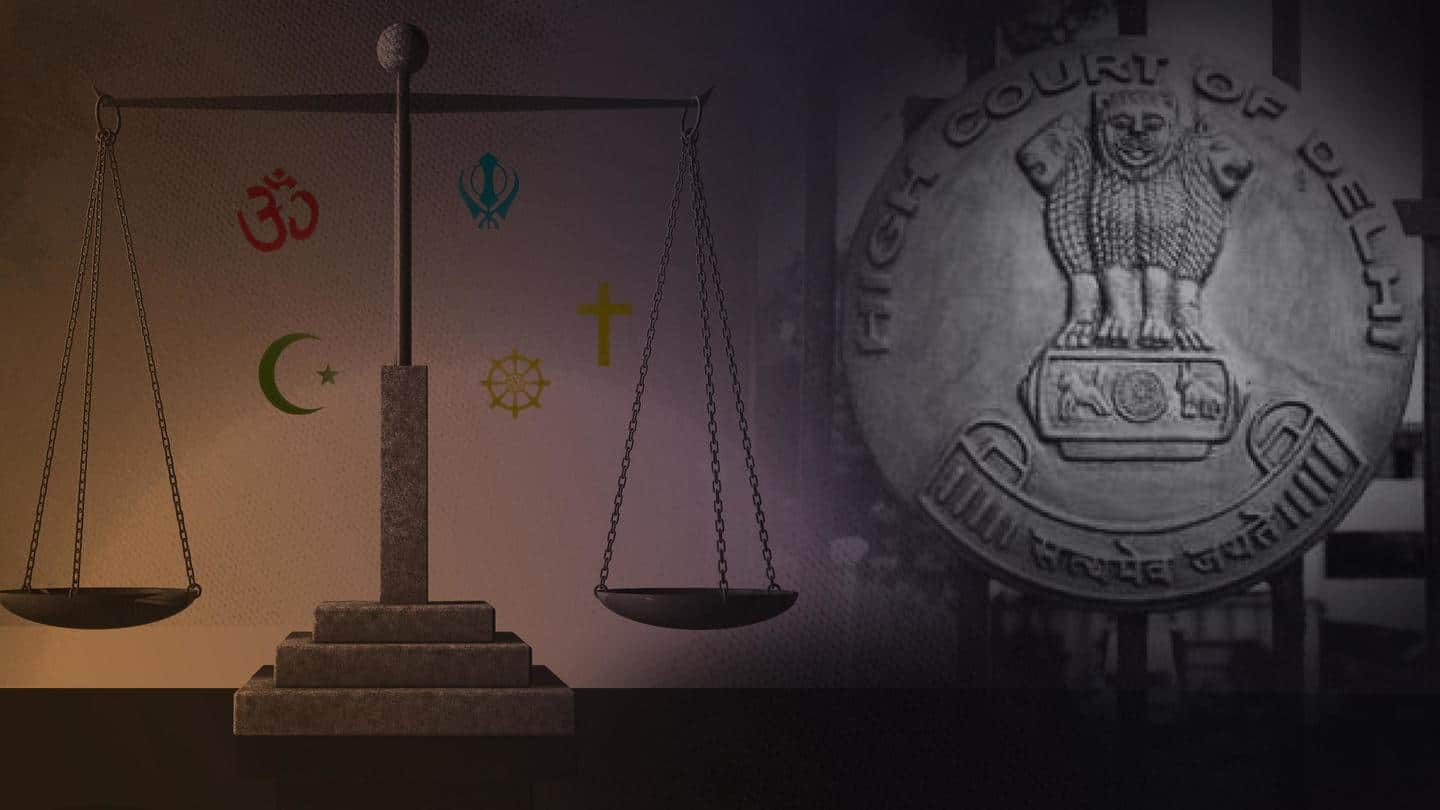
Delhi High Court supports Uniform Civil Code. What is it?
What's the story
The Delhi High Court on Friday supported the need for Uniform Civil Code (UCC) in India and asked the central government to take necessary steps in this regard, reports say.
The court remarked that the Indian society is becoming increasingly "homogeneous," hence there is a need to adopt such a Code.
But what exactly is Uniform Civil Code?
Details
'Modern Indian society gradually becoming homogeneous'
"In modern Indian society, which is gradually becoming homogeneous, the traditional barriers of religion, community, and caste are slowly dissipating," Justice Prathiba M Singh said.
"In view of these changing paradigms, a Uniform Civil Code is in order," Justice Singh added.
She was hearing a plea involving the applicability of the Hindu Marriage Act, 1955 in case of a couple from the Meena community.
Details
Several courts have called for UCC: Justice Singh
Justice Singh said several courts have time and again called for Uniform Civil Code, but no steps have been taken toward its implementation.
"The hope expressed in Article 44 of the Constitution that the State shall secure its citizens Uniform Civil Code ought not to remain a mere hope."
In fact, establishing such a Code has been the ruling BJP's agenda for long.
Quote
'Citizens should not be made to struggle'
"Cases like the present repeatedly highlight the need for such a Code...so that settled principles, safeguards, and procedures can be laid down and citizens are not made to struggle due to the conflicts and contradictions in various personal laws," the court said.
UCC
What is the Uniform Civil Code?
The Uniform Civil Code means having a common set of laws governing personal issues such as marriage, divorce, succession, and adoption for all citizens of the country, irrespective of their religion or faith.
Currently, different laws are in place for such matters in India.
However, the Muslim personal laws are not codified and are based on their religious texts.
Case
What was the said case all about?
In the said case of the couple from the Meena community, the husband had earlier filed for divorce under the Hindu Marriage Act.
However, a family court had rejected his petition, saying the law did not apply to the Meena community, a notified Scheduled Tribe in Rajasthan.
The man then challenged that order in the Delhi High Court, which has made the aforementioned observations.